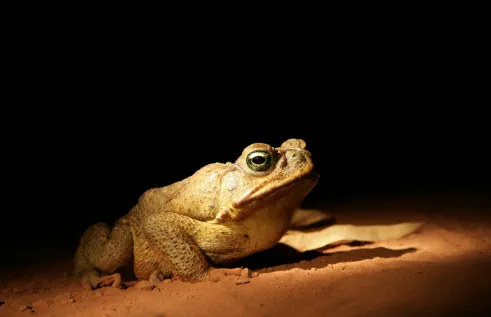News
Ocean currents study dispels scientists’ assumptions about North Australian Gulf
A Charles Darwin University (CDU) study investigating physical movement mechanisms of marine life and debris has dispelled assumptions and helped to improve knowledge of the ‘data-limited’ Gulf of Carpentaria.
Ocean currents and their influence on marine ecosystems across Northern Australia are somewhat of a mystery because of their sheer size and complexity, and the high costs of conducting exploratory fieldwork in remote locations.
CDU Oceanographer Ruth Patterson and fellow researchers used ocean current mapping to increase knowledge of green turtle migration patterns, giant mud crab migration patterns and the records of marine debris collected from beaches in the Gulf.
“We initially thought that currents and ocean topography influence these animals’ migrations,” Ms Patterson said.
“But we found currents and wind have no influence on green turtle’s migration paths, and that they seemingly used coastal cues to ‘leapfrog’ along the coastline until they reached foraging grounds.
“Tagged male giant mud crabs can also migrate, against winds, currents and tides, more than 200km in 28-35 days using selective tidal stream transport and directional swimming.”
The paper titled ‘Improving certainty in marine ecosystems: A biophysical modelling approach in the remote, data-limited Gulf of Carpentaria’ was published in Estuarine, Coastal and Shelf Science journal.
Another dispelled misconception was the amount of marine debris in the region – the new research, using biophysical modeling and citizen science coastal marine debris surveys led by First Nations rangers, found there was a lot more washing up on local beaches.
The debris included bottle tops, cigarette lighters, squid jigs, aluminium cans and sandals.
“This latest research suggests that marine waste is a more widespread problem in Northern Australia than previously thought,” she said.
“We know where this debris comes from by the labels, the type of debris that is washing up and sometimes the species attached to it. We can also assess how long it’s been in the water by the marine growth.”
Regular beach clean-ups and assessments by First Nations rangers also contributed to improved knowledge of how ocean currents impacted the time, amount and diversity of marine debris washing up on eastern and western sides of the Gulf.
"Collaboration and data-sharing across the sectors of fisheries, culture, and conservation becomes increasingly crucial in the remote environment of the Gulf of Carpentaria,” Ms Patterson said.
“By integrating interdisciplinary efforts, we unlock a profound understanding of this unique ecosystem, enabling effective management strategies that preserve biodiversity, safeguard cultural heritage, and ensure the long-term sustainability of these geographically isolated regions."
Related Articles

Nanoplastics hindering cognitive abilities of fish, international research shows
Nanoplastic exposure can impair the cognitive abilities of fish and could lead to significant impacts on marine species’ ability to survive, according to a new international study.
Read more about Nanoplastics hindering cognitive abilities of fish, international research shows
Eradication would cost billions: NT’s lessons for Pilbara’s cane toad management
Cane toads are predicted to invade Western Australia’s Pilbara region by 2041 if left unchecked, but the Northern Territory’s population of the pests hold key lessons that could save billions in eradication costs.
Read more about Eradication would cost billions: NT’s lessons for Pilbara’s cane toad management
New project to grow Indigenous aquaculture on one of Australia’s largest islands
An Australian island’s efforts to improve food security and transition into a blue economy will be bolstered by a new project to propagate a nutritious and increasingly popular fish.
Read more about New project to grow Indigenous aquaculture on one of Australia’s largest islands
